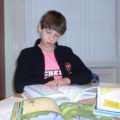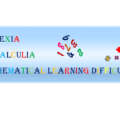Raising the Stakes: How not to Prepare for Exams
In the last year of primary school children sit very important school tests. These include: entrance examinations for selective schools in January, SATs papers in May, 11 plus exams in September. Between a year and six months before these tests, a lot of anxious parents start looking for tutors in order to receive some intense training for the big days.
Having significant experience in maths education, I can vouch for the well-known fact that “teaching for the test” is not a good way to learn mathematics. However, some of these tests have such “high-stakes values” that many parents feel pressure to coach their child for the test, even when the child is not really coping with mathematics.
The impact of such training on young children can be devastating. Over the years I have met many disappointed students who came to me after achieving very low scores on “important” tests despite intense training focused on passing that very test. Most of these children were very confused, afraid to think independently, clinging to learned-by-rote rules and calculation methods, and making a lot of “silly” mistakes because they were extremely anxious of mathematics.
The main concern of parents in such cases is that their child has low mathematical abilities and problems with retention of information. I believe that the basic maths studied in school does not require any special abilities. Also, because maths is a conceptual, not a factual, subject, bad retention is more likely to be a problem caused by intensive rote learning, and is typical in children coached for a test.
The major issue with “teaching for tests” is that children are “rushed” through the topics of a very broad curriculum. They do not see the logical connections between these topics and therefore cannot process information into knowledge. To avoid such “overcoaching”, children should be taught the fundamentals of the subject rather than just trained to pass the test.
My recommendation to parents is to start teaching maths early, conceptually, gradually and systematically. Specific preparation for tests should be left to the very last stage. It is important to keep in mind that the “highest stakes”, particularly in the education of young children, are the child’s confidence and interest in the subject, rather than their successes in the exam room.






